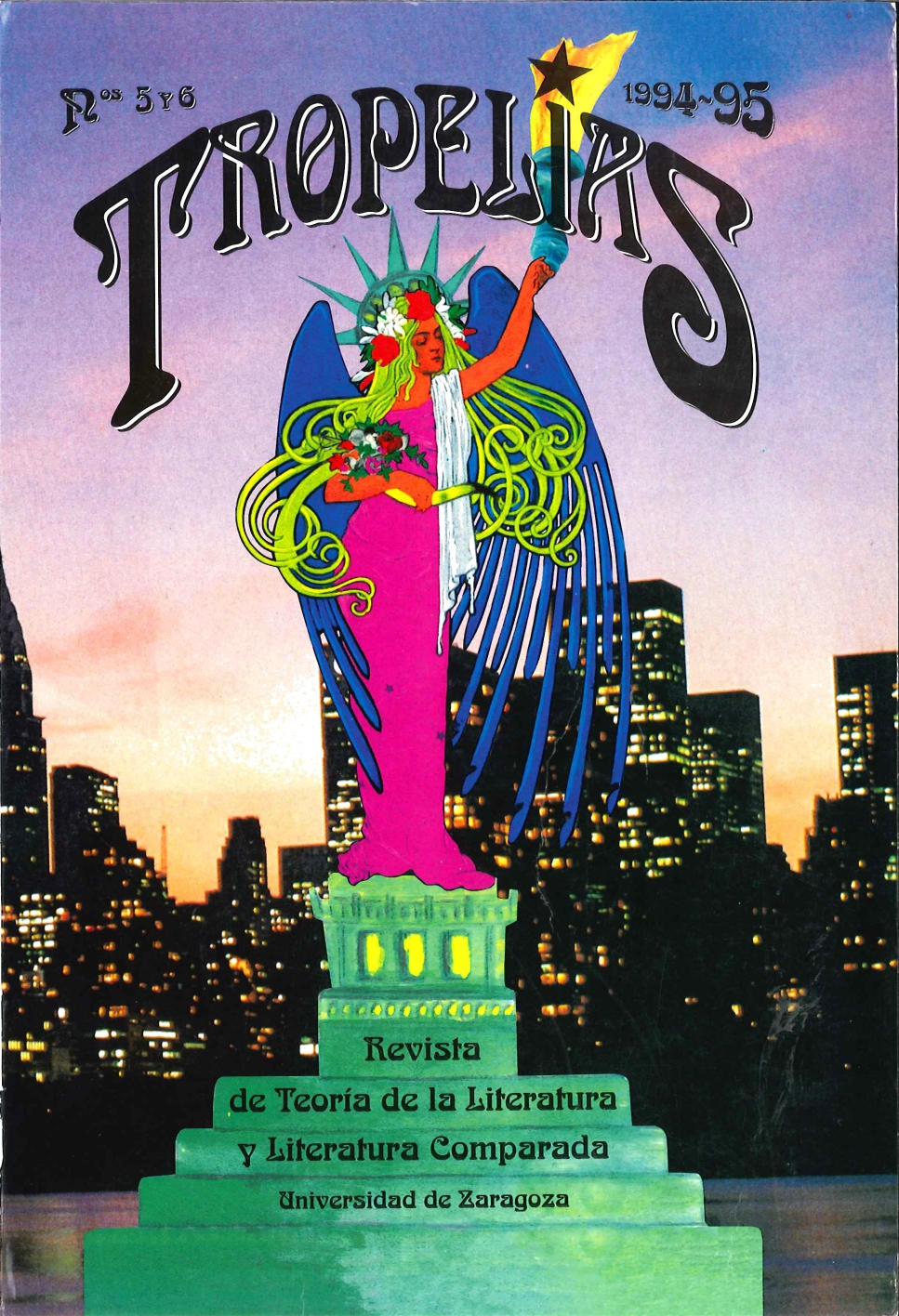Between reality and desire: truth and significance in Robert Lowell's "Skunk Hour"
DOI:
https://doi.org/10.26754/ojs_tropelias/tropelias.19955-65585Keywords:
Robert Lowell, truthAbstract
From a Lacanian perspective, this paper elaborates on truth as distinct from a traditional conception of the rational and as separated from the conscious intention of the author. Discourse is seen as a symbolic process in which the subject builds the figures of his unconscious desire. Nietzsche already noted the illusory nature of truth and its dependence on the metaphoric character of all forms of language as inherited beliefs whose fictive -discursive- construction we tend to forget. Our analysis of Rober Lowell's autobiographical "Skunk Hour" (Life Studies, 1957), will serve to illustrate meaning as originating in a series of textual relations; meaning as based on the capacity of tropes to displace and hide, while showing, at the same time, the fragility of our imaginary link to reality.
Downloads
Downloads
Published
Versions
- 1995-12-31 (3)
- 2021-06-27 (2)
- 2021-06-18 (1)
How to Cite
Issue
Section
License
Copyright (c) 2021 Amalia Rodríguez Monroy

This work is licensed under a Creative Commons Attribution 4.0 International License.
Los artículos enviados a la revista Tropelías deben ser originales e inéditos, no publicados previamente en cualquier soporte. Únicamente se aceptará material publicado total o parcialmente con anterioridad, o que esté en proceso de evaluación en otra revista, si se hace constar la causa de tal duplicación y se facilita la fuente donde ha aparecido dicho artículo.
Las imágenes que se incluyan en los artículos estarán libres de derechos de reproducción y, en caso contrario, los autores deberán presentar los permisos para su publicación y asumir los pagos derivados de ello.
Los artículos y reseñas publicados en la revista Tropelías pueden ser incluidos en repositorios temáticos o institucionales desde el momento de su publicación, sin modificación alguna e indicando claramente su procedencia.


